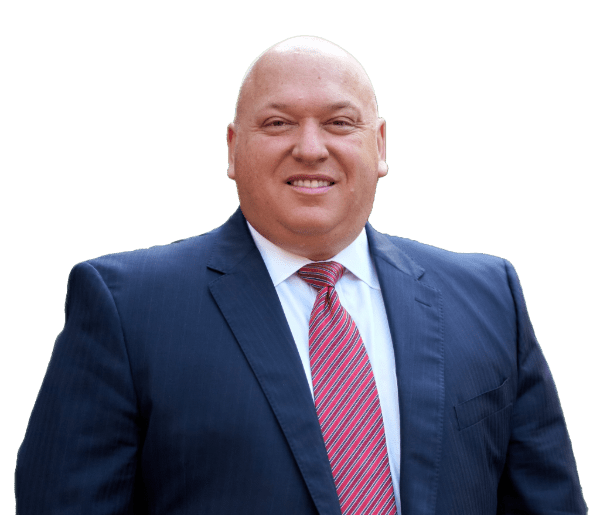Wealthtender is a trusted, independent financial directory and educational resource governed by our strict Editorial Policy, Integrity Standards, and Terms of Use. While we receive compensation from featured professionals (a natural conflict of interest), we always operate with integrity and transparency to earn your trust. Wealthtender is not a client of these providers.

The stress and emotional impact of sudden wealth can be surprisingly hard to deal with. Learn tips to cope and meet the financial advisors who specialize in serving clients who have come into sudden wealth.
C’mon, admit it…
Even if you’re super savvy financially, I’m sure you’ve occasionally bought a lottery ticket (or several). I know I have when the jackpot is so astronomically high that it more than compensates for the next-to-but-not-quite-zero odds of winning the big one.
If nothing else, we do it so that for a few days, we can fantasize about becoming a centi-millionaire (with a net worth of $100 million or more) or a billionaire in one fell swoop. Having the kind of money that would let us:
- Immediately pay off all debts, including credit cards, auto loans, student loans, and even mortgages
- Say goodbye (or for some of us it may be a single finger, ahem…) to our boss, because we don’t need that salary anymore.
- Buy anything we dream of, be it designer clothes and shoes, high-end cars, a big house with a million-dollar view, one or more vacation homes, or maybe even a yacht.
- Go on extended trips to exotic locations (Bali anyone?), flying first-class or even chartering our own jet, sipping fruity cocktails on tropical beaches.
- Go to high-society parties, hobnobbing with the rich and powerful.
- And if we aren’t totally self-absorbed, help family members who’re struggling financially and make meaningful contributions to charitable causes near and dear to us.
“Wouldn’t that be so awesome?” we think to ourselves.
Even if you don’t hit the lottery jackpot, maybe you’re creative and lucky enough to become the next J.K. Rowling of Harry Potter fame (though maybe with less controversial stances on societal issues…) or score a rich NFL contract worth hundreds of millions of dollars.
However it happens, imagine you suddenly go from your current financial circumstances to having a net worth in the top 0.03% in the US…
Paradise, here I come… Right? Or, maybe not so much…
Table of contents
What is Sudden Wealth Syndrome?
When your financial circumstances suddenly change so dramatically, you don’t have the experience, knowledge, or even network of people to advise you on what you can or should do with your newfound wealth.
If your checking account balance suddenly launches to outer space, how would you react? Who would you turn to for advice on how to manage your money or even how to keep an even keel?! Chances are, your family, friends, colleagues, or even acquaintances don’t include anyone with a $100 million net worth or even $10 million for that matter.
It would almost surely cause you incredible stress, anxiety, and loneliness.
Will your friends still feel comfortable going out with you?
Will they be able to keep up with your likely new lifestyle?
Would new (or longtime) “friends,” relatives you never even knew existed, and scammers start crawling out of the woodwork with their hands out, hoping (if not actually expecting) that you’d share at least some of your newfound wealth with them?
Would people in your new financial bracket be welcoming to someone who just yesterday was barely making ends meet and now suddenly may have even more money than they do?
Finally, would you be able to stay rich (and sane) or even alive? Many lottery winners didn’t.
While the negative emotional impacts of suddenly becoming wealthy don’t appear in the Diagnostic and Statistical Manual of Mental Disorders (DSM) – the bible of mental health diagnoses, some therapists who work with people in this situation coined the term Sudden Wealth Syndrome.
The Problems of the Suddenly Wealthy
Not having the necessary financial knowledge and experience can get you into deep trouble. Even if you don’t end up poorer than before, you could suffer from very real emotional problems.
For example:
- You’d likely owe more in taxes than your total lifetime income to date (prior to becoming wealthy), and if you don’t set aside enough to pay those taxes, you could end up in deep trouble with the IRS.
- If you start spending and/or giving money away like there’s no tomorrow, when tomorrow does come, you may find yourself in worse financial circumstances than before you got your windfall. Even the Vanderbilt family managed to squander $200 billion in today’s money within 50 years. And if a family with such storied wealth can totally run out of money, how much more so someone with no background of wealth?
- Whether because you can’t believe it really happened or fear how your family, friends, and neighbors will react, you may feel financially paralyzed. Even if you hate your job and your boss, you may feel reluctant to quit your job. Even if you’re paying high interest on credit card debt, you might not even feel like you can actually wipe out that debt.
- Even if you’re wise enough to get professional financial advice, you may become anxious that it could all evaporate as quickly as it came into your life and be unwilling or unable to invest with prudent levels of risk. If you do so invest, you may become obsessed with watching the markets, constantly afraid that your portfolio could crash and burn.
- For so many of us, our identity is deeply tied to what we do professionally. Imagine suddenly not needing to work another day in your life. You might indeed quit, but you may suffer an identity crisis until you can figure out who you are given your new circumstances. This is a common problem for retirees who’ve had many years to get used to the idea of retirement. How much worse for someone who expected to have to stay on the hamster wheel for decades more and overnight learns they can retire early?
- Even if you don’t go crazy with your spending, family and close friends may pull away. They may feel like they’re no longer valued by you. They may be jealous of your new wealth and/or resentful that you accomplished something they will likely never achieve. Even if none of that happens, most of your friends will still need to go to work every day, and few, if any, will be able to join you on the sort of vacation you’ll suddenly be able to afford. As this happens, you’ll likely start feeling lonely.
- As mentioned above, others may try to become closer to you, not because they appreciate you more, but rather because they’re hoping for a financial benefit, whether because you can pick up the check for everyone when you go out to a restaurant or through a direct financial gift. As this happens, you’d likely become suspicious even of those few who stay with you because they’re truly interested in you, not your money, further exacerbating your loneliness.
How to Stay Rich and Sane in the Aftermath of Sudden Wealth
They say money can’t buy happiness. Most of us would be happy to be given the opportunity to disprove that saying. If you suddenly come into a lot of money, here are some things you can do in the short and long term to stay rich, sane, and hopefully happy.
Newly Rich? Do This in the Short Term
- To the extent possible, don’t share the financial news with anyone you don’t have to. And no, that doesn’t mean you can keep it a secret from your spouse. Keeping things quiet will prevent, reduce, or at least delay losing friends or wondering who’s around you solely or mostly for expected financial benefits. It’ll also help protect you from scammers, thieves, or even legitimate charities trying to separate you from more money than you wish.
- Continue participating in your normal leisure activities. Keep going to the gym. Continue going out for drinks with the guys or gals. Keep bowling, or playing tennis and/or whatever other sport you enjoy. Stick with your book club/bridge club/chess club. This will help you stay grounded and maintain your friendships.
- Until you finish the next few steps, avoid making financial moves you wouldn’t have made before becoming wealthy.
- Hire a team of reputable advisors – an accountant, a financial planner, an investment advisor, and an attorney. Where applicable, ensure they’re fiduciaries, required to put your financial interests ahead of their own.
- Have your accountant figure out how much you need to set aside for future taxes and how much you need to pay now. The latter, pay now.
- With your accountant and attorney, figure out how much you actually have after taxes.
- Once you know how much you have, talk with your financial advisors to figure out your financial goals and priorities given your new circumstances and how much you can and should put toward each. Make sure the plan includes a set amount of “mad money” that you can spend on whatever crazy luxuries you want. As long as you avoid overspending, enjoying your new wealth within bounds is part of what will make you happy (without driving you into bankruptcy).
- Work out with your investment advisor what investment risks you’d be able to live with and how to construct a diversified portfolio of investments (likely including stocks, bonds, possibly real estate, precious metals, etc.).
- If you have any high-interest debts, pay those off as soon as you’ve finished developing your plans with your advisors. If they’re any good, they’ll probably make that one of your top priorities.
ASK THE EXPERTS
Q: What do you suggest people do first when they come into a substantial amount of wealth?
We asked financial advisors in the Wealthtender community to answer this question. Here’s what they said.

The first thing you should do is sit down with a fiduciary advisor who can help you think through what has just happened, how your financial situation has changed, and what are your goals. Part of that process will be to help you get clear about your values and purpose. At that point, your advisor will explain your options and help you develop a plan for how to move forward.
Sean Polley, CWM® | Polley Wealth Management

My best advice for those people who are fortunate enough to receive “sudden wealth” either from winning the lottery or an inheritance is that before you go out and buy a Ferrari or a Gulfstream jet, take time to prioritize your spending, focusing on the areas most important to you. While they may not be the most exciting expenditures, you should take care of the following before spending on “fun” purchases:rnu003culu003ern tu003cliu003ePay taxesu003c/liu003ern tu003cliu003eReduce debtu003c/liu003ern tu003cliu003eSave for retirementu003c/liu003ernu003c/ulu003ernAfter you have those important steps behind you feel free to go out and enjoy yourself and remember to #GiveEveryDay.
Jorey Bernstein | Jorey Bernstein Private Wealth Management
Do This in the Intermediate-Term
- With your accountant’s help, set up timely tax payments.
- Deploy your new wealth in a way that reduces your overall risk (prudent and diversified investments), and that prevents what happened to the Vanderbilts by making most of the money less liquid, so even if you wanted to, you couldn’t easily spend it all away.
- Consider if quitting your job will make you happier than sticking with that identity. If you decide to quit, put together a plan for what you want your life to look like in terms of what you’ll do every day that will make you happy to get out of bed in the morning. Only after that’s in place should you consider giving notice at work.
- Within the limits of your new financial plan, start spending on things you couldn’t do before. You may want to upgrade your home and car(s). You may want to treat your family to an expensive vacation. You may want to replace your wardrobe. Whatever it is, make sure your new spending level is sustainable, including the maintenance costs on your new property/ies.
- Just as in the short term and for the same reasons, continue your leisure activities. Now, however, you can start thinking about what other activities you want to pick up that might previously have been out of reach. Perhaps you’ve always wanted to ski or scuba dive but couldn’t afford it. Now’s the time to cautiously expand your scope of fun activities, again, within the scope of what your new financial plan allows. However, as you expand your horizons, make sure you don’t inadvertently push away friends by trying to get them to do things that are beyond their means. Even if you offer to pay for things, it may make them feel uncomfortable, costing you their friendship.
- Before news of your new circumstances starts spreading, figure out how you’ll respond to monetary requests from close family, distant relatives, close friends, charities, etc. Planning this ahead of time will serve you in good stead when not if people start asking. Your response should and will depend on the source of the request, the reason for it, and the amount requested. For example, if your brother loses his job and needs temporary help with the mortgage to keep his house, you’re more likely to say yes than if a third cousin twice removed asks you to bankroll to the tune of $10 million his new business venture, developing modular housing for an eventual base on Mars.
Do This in the Long Term
- If you find yourself struggling to figure out your new identity, fighting anxiety and/or loneliness, or any other emotional challenges, find a good therapist. Research proves that therapy is 4x more likely to help address emotional issues than toughing it out on your own.
- Continue participating in the leisure activities you enjoy with the people you enjoy doing them with.
- With your attorney’s help, set up an estate plan (that includes an updated will).
- Unfortunately, as the news spreads, you may well need to not only decline many requests but also defend yourself from numerous frivolous lawsuits. Your attorney can help with that, whether by representing you or by referring you to a good litigator.
Sudden Wealth Syndrome: The Bottom Line
Even if sudden wealth syndrome isn’t recognized as a mental disorder in the DSM, the stresses and emotional impacts of sudden wealth can be surprisingly hard to deal with. And while all of us love to fantasize about becoming unimaginably wealthy overnight, such fortune comes with very real challenges and occasionally even deadly consequences.
As true as the above is, don’t expect much sympathy from family, friends, or acquaintances for what you have to deal with. They can only see the fantasy, not the reality you’re dealing with. So, if you find yourself struggling, seek professional help from a good therapist. And no matter what, make sure to build a team of reputable advisors who will help you stay rich while your therapist helps you stay sane.
Find a Sudden Wealth Financial Advisor on Wealthtender
📍 Click on a pin in the map view below for a preview of financial advisors who specialize in serving clients impacted by a sudden wealth event who can help you reach your money goals with a personalized plan. Or choose the grid view to search our directory of financial advisors with additional filtering options.
📍Double-click or pinch pins to view more.
🙋♀️ Have Questions for Financial Advisors About Sudden Wealth?
Smart Tips to Find a Sudden Wealth Financial Advisor
Before hiring a sudden wealth financial advisor, here are a few quick tips to help you find the best advisor for you.
1. Decide Which Services You Need
Before hiring a financial advisor, determine what services you need from them. Whether it’s full-service investment management or a plan focused on a specific area of your finances, put together a list of what you’d like help with before contacting an advisor.
Though most people use a financial advisor simply to invest for retirement, this is only a small part of what many advisors offer. Here’s a quick rundown of potential services a financial planner may offer you:
- Budgeting and money management
- Debt management
- Insurance planning
- Retirement planning
- Other investment planning
- Inheritance planning
- Estate planning
- Tax planning
As you can see, financial advisors can help you with your entire financial picture, not just investing. As you start to plan for life’s bigger milestones, you should consider finding a financial advisor that specializes in those areas.
Finding the right advisor can help you minimize risk, maximize gains and take advantage of tax breaks while investing for your future. They can also help you protect your assets with the right kinds of insurance and help you pass on your financial legacy with a proper estate plan.
2. Consider Your Budget and Payment Preferences
Once you have a list of services you would like, review the fee structures financial advisors offer. Finding a balance between the services you need and the cost of those services will help narrow down the field of advisors you may want to work with.
If you are looking for a full-service advisor to manage all of your investments, consider searching among fee-based financial advisors. If you want to manage your money yourself, consider the flat fee and monthly subscription advisors for ongoing support.
3. Interview Multiple Financial Advisors
Once you have chosen the services and fee structure you prefer, it’s time to contact a few advisors and interview them. Here are questions to ask financial advisors:
- What services do you provide?
- What are all the ways you get paid? (fee transparency)
- What is your investment strategy?
- How do you measure investment performance?
- How do we communicate about my plan?
Interview multiple advisors to get a feel for who you want to work with. A combination of fees, services, and customer service will help you determine the best fit for your financial advice.
4. Review Financial Advisor Credentials
Once you find an advisor (or two) you feel comfortable with, it’s always a good practice to check their credentials and the firm’s details. You can do this at the Investment Adviser Public Disclosure (IAPD) website.
You can check both the individual and the firm to view their background and experience details, as well as any disciplinary action taken against them or their firm.
As licensed financial professionals, there is oversight into how financial advisors conduct business, so running a quick (free) check on them is recommended.
For additional information about advisor credentials, read our article to learn the most popular designations held by financial advisors, as well as specialized credentials which may be important to consider if you have unique financial planning needs.
– Q&A with a Sudden Money Financial Advisor –
Three Questions with Danielle Miura, CFP®
We asked Ripon, California financial advisor, and sudden money specialist Danielle Miura, the founder of Spark Financial, to answer three questions often on the minds of people impacted by a sizable financial windfall.
Q: In many circumstances, people know they are likely to receive a sizable windfall at a future date, but without certainty as to when. In these circumstances, what should people be thinking about now from a financial planning perspective to be best prepared for a potentially significant change to their net worth?
Danielle: People who know that they are likely to receive a sizable windfall at a future day should gather as much information as possible, get a rough estimate of their tax and liquidity implications, and prepare if they don’t end up receiving the windfall.
It is important to gather as much information as possible so you are prepared to take the next steps when you receive the sudden money. Depending on your sudden money situation, some of the documents you may want to collect are employee benefits plans, wills or trusts, or account documents.
If you are expecting to receive a large inheritance, you may want to learn more about the individual’s assets while they are alive (e.g. Learn about their business, how they manage rental properties).
After you have collected as much information as possible, meet with a tax professional and/or estate attorney to discuss the possible implications of receiving the sizable windfall. Some questions might include:
- How much tax will I be expected to pay?
- How can I liquidate the asset(s)?
- How can I reduce my tax liability?”
Lastly, have an alternative plan if things don’t go according to plan or you don’t get as much money as you initially thought you would.
Q: When a sudden money event does occur, what are the primary benefits of working with a financial advisor who specializes in planning around these major life events?
Danielle: The primary benefits of working with a financial advisor who specializes in windfall planning are to navigate you through the process, educate you about your options, and avoid unnecessary fees and tax implications.
Many people believe that having a financial windfall can solve all their problems, but if they are not prepared it can often lead to a tremendous amount of confusion and uncertainty. Creating a team of professionals that have knowledge in taxation, laws, and financial planning can help you ease your anxiety and protect your assets from solicitations and unfortunate money mistakes.
Q: What questions should people ask a financial advisor to determine if they are a good fit to help navigate a sudden money event?
Danielle: What are your credentials? Describe the type of clients that you normally work with. What is your policy regarding working with other advisors, such as your CPA, estate attorney, or insurance broker? What is your investment philosophy? What do you expect from me in our relationship? How are you paid(e.g. commission, flat fee, percentage of assets)?
Disclaimer: This article is intended for informational purposes only, and should not be considered financial advice. You should consult a financial professional before making any major financial decisions.

About the Author
Opher Ganel, Ph.D.
My career has had many unpredictable twists and turns. A MSc in theoretical physics, PhD in experimental high-energy physics, postdoc in particle detector R&D, research position in experimental cosmic-ray physics (including a couple of visits to Antarctica), a brief stint at a small engineering services company supporting NASA, followed by starting my own small consulting practice supporting NASA projects and programs. Along the way, I started other micro businesses and helped my wife start and grow her own Marriage and Family Therapy practice. Now, I use all these experiences to also offer financial strategy services to help independent professionals achieve their personal and business finance goals. Connect with me on my own site: OpherGanel.com and/or follow my Medium publication: medium.com/financial-strategy/.
Learn More About Opher
Wealthtender is a trusted, independent financial directory and educational resource governed by our strict Editorial Policy, Integrity Standards, and Terms of Use. While we receive compensation from featured professionals (a natural conflict of interest), we always operate with integrity and transparency to earn your trust. Wealthtender is not a client of these providers.

































